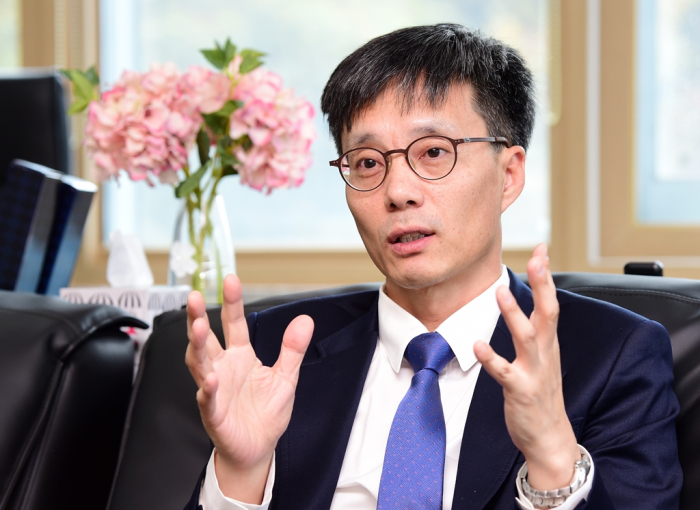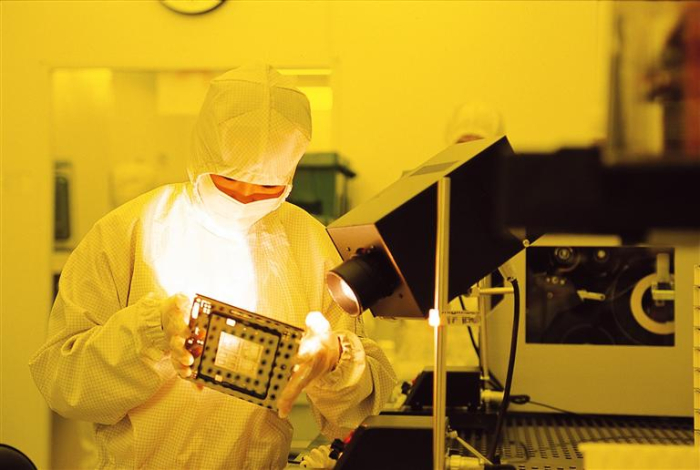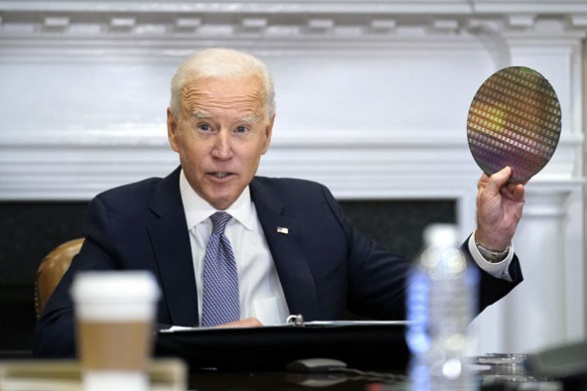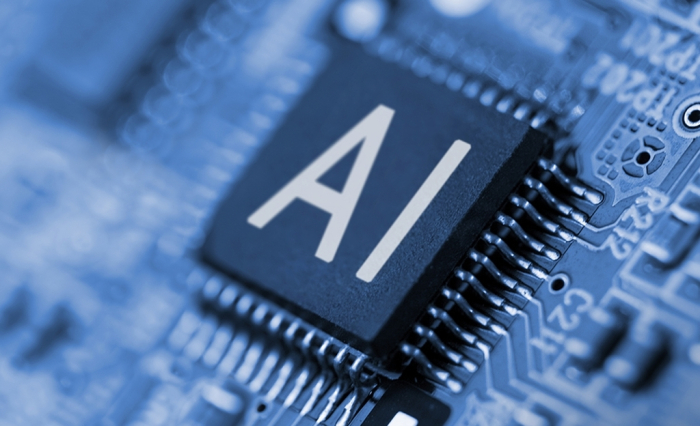Korean chipmakers
Advanced memory is strategic asset for KoreaŌĆÖs chip supremacy: Hwang
The chip expert says a future memory chip will work like the human brain and a development project is underway
By Aug 03, 2023 (Gmt+09:00)
3
Min read
Most Read
Hankook Tire buys $1 bn Hanon Systems stake from Hahn & Co.


NPS to hike risky asset purchases under simplified allocation system


UAE to invest up to $1 bn in S.Korean ventures


Osstem to buy BrazilŌĆÖs No. 3 dental implant maker Implacil


US multifamily market challenges create investment opportunities



South Korea, home to the worldŌĆÖs two largest memory chipmakers ŌĆō Samsung Electronics Co. and SK Hynix Inc. ŌĆō has been the dominant semiconductor player for over a decade, controlling more than half the global DRAM market.
Back in 2016, Samsung alone controlled 50% of the DRAM segment. But its market share has declined to the early 40% range, says a renowned engineering professor at Seoul National University (SNU).
ŌĆ£Looking back at the history of semiconductors, memory chip technology has grown faster than that of central processing units (CPUs), and this trend will continue in the future," Hwang Cheol-Seong, a distinguished professor at SNUŌĆÖs Department of Materials Science and Engineering, said in a recent interview with The Korea Economic Daily.
"Korea should utilize cutting-edge memory semiconductors as a strategic asset for national security.ŌĆØ
Hwang, who led the Inter-University Semiconductor Research Center of the countryŌĆÖs top college from 2014 to 2015, is one of the countryŌĆÖs prominent experts on memory devices, semiconductor materials and processes.

TORN BETWEEN THE US, CHINA
He said Korea should leverage the state-of-the-art chip technology of Samsung and SK Hynix to enhance its clout amid the intensifying conflict between the US and China over chip supremacy.
"Taiwan, leveraging TSMCŌĆÖs factories in its country, asks Western countries to protect it (from China). KoreaŌĆÖs advanced DRAM companies can also play the role of a shield. Advanced chips are strategic assets for national security,ŌĆØ said the professor.
TSMC, or Taiwan Semiconductor Manufacturing Co., is the worldŌĆÖs largest foundry or contract chipmaker, playing a key role in the global supply chain.
In recent years, Korea is feeling the heat as it is dragged into the power struggle between Washington and Beijing over chip technologies.

The ceaseless Sino-US faceoff is posing a growing risk for Samsung and SK Hynix as China along with Hong Kong account for nearly two-thirds of their export market while the US is KoreaŌĆÖs traditional ally.
Hwang urged Samsung, the worldŌĆÖs top DRAM and NAND chips maker, to sharpen its business strategy.
ŌĆ£Last year, the company split its 45 trillion won ($34.7 billion) chip investment into 15 trillion won for foundry and 30 trillion won for memory. By chasing two rabbits simultaneously, it can lose both of them,ŌĆØ he said.
MEMORY RESEMBLING THE HUMAN BRAIN
He expects the importance of memory chips to increase in the artificial intelligence (AI) era.
ŌĆ£In the current computing architecture, the CPU is responsible for computation and the memory stores data. They work separately and exchange vast amounts of data, causing a data traffic jam along with increased data volume as AI advances. To address this, memory chips will eventually take on the task of computation,ŌĆØ the chip expert said.

He said memory chips will work like the human brain in the future, dubbing the mechanism neuromorphic computing.
"DRAM and NAND flash can only solve problems with a single correct answer, just like 1 plus 1 equals 2. But the brain finds the optimal solution in a given situation, not just one predetermined answer,ŌĆØ he said.
ŌĆ£Researchers are already working on developing a new memory chip that works like the human brain.ŌĆØ
Regarding the controversy over data centersŌĆÖ huge power consumption, he said chipmakers are working on next-generation low-power chips that handle complex computations by themselves, putting less burden on┬Ā data centers' power use.
Write to Ye-Rin Choi at rambutan@hankyung.com
In-Soo Nam edited this article.
More to Read
-
 Korean chipmakersSamsung, SK Hynix face collateral damage from Micron chip ban
Korean chipmakersSamsung, SK Hynix face collateral damage from Micron chip banMay 22, 2023 (Gmt+09:00)
4 Min read -
 Korean chipmakersSamsungŌĆÖs Jay Y. Lee walks on tightrope in US, China investments
Korean chipmakersSamsungŌĆÖs Jay Y. Lee walks on tightrope in US, China investmentsMar 14, 2023 (Gmt+09:00)
4 Min read -
 Korean chipmakersSamsung sets sights on GAA tech to overtake TSMC in foundry
Korean chipmakersSamsung sets sights on GAA tech to overtake TSMC in foundryNov 29, 2022 (Gmt+09:00)
6 Min read -
 The KED ViewCan Samsung Electronics ever catch up to foundry leader TSMC?
The KED ViewCan Samsung Electronics ever catch up to foundry leader TSMC?May 03, 2022 (Gmt+09:00)
4 Min read
Comment 0
LOG IN


